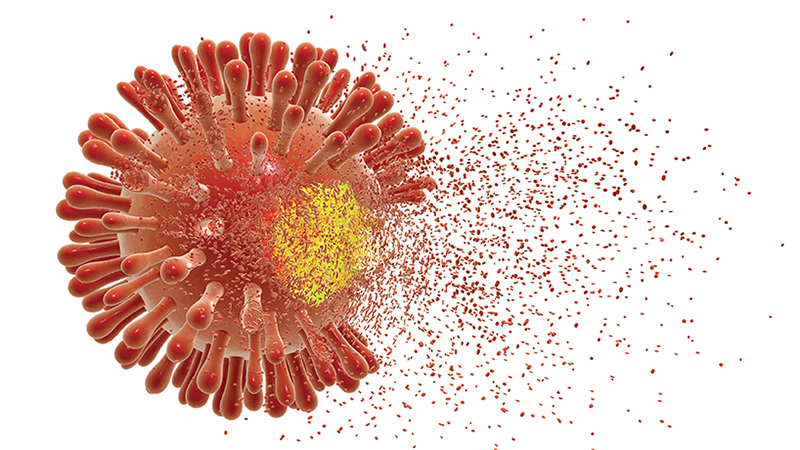A phase 1 clinical trial testing a novel vaccine approach to prevent HIV has produced promising results, marking a major step toward the ultimate goal of protecting people around the world against the deadly and fast-mutating virus.

The vaccine—developed in the lab of Scripps Research Professor William Schief, PhD—showed success in stimulating production of rare immune cells needed to start the process of generating antibodies against the fast-mutating virus. The desired immune response was detected in 97 percent of participants who received the vaccine.
“A holy grail of the HIV vaccine field is to elicit broadly neutralizing antibodies by vaccination, and here we’ve shown in humans that we can start that process,” says Schief, who also serves as executive director of vaccine design at IAVI’s Neutralizing Antibody Center. IAVI, a nonprofit dedicated to treating infectious diseases globally, led the clinical trial.
HIV, which affects more than 38 million people globally, is known to be among the most difficult viruses to target with a vaccine, in large part because it constantly evolves into different strains to evade the immune system. The new approach, which would require a series of immunizations, seeks to ultimately generate special antibodies that can disable all or most strains.
As a next step, Scripps Research and IAVI are partnering with the biotechnology company Moderna to develop and test an mRNA-based vaccine that uses the same approach to produce the beneficial immune cells. The mRNA technology, such as what’s used in some COVID-19 vaccines, could significantly accelerate the pace of HIV vaccine development, Schief says.
“This is a tremendous achievement for vaccine science as a whole,” says Dennis Burton, PhD, professor and chair of the Department of Immunology and Microbiology at Scripps Research, scientific director of the IAVI Neutralizing Antibody Center and director of the NIH Consortium for HIV/AIDS Vaccine Development. “This clinical trial has shown we can drive immune responses in predictable ways to make new and better vaccines—and not just for HIV. We believe this type of vaccine engineering can be applied more broadly, bringing about a new day in vaccinology.”
Funding from the Bill & Melinda Gates Foundation, through the Collaboration for AIDS Vaccine Discovery, supported a wide network of partners that made the study possible.